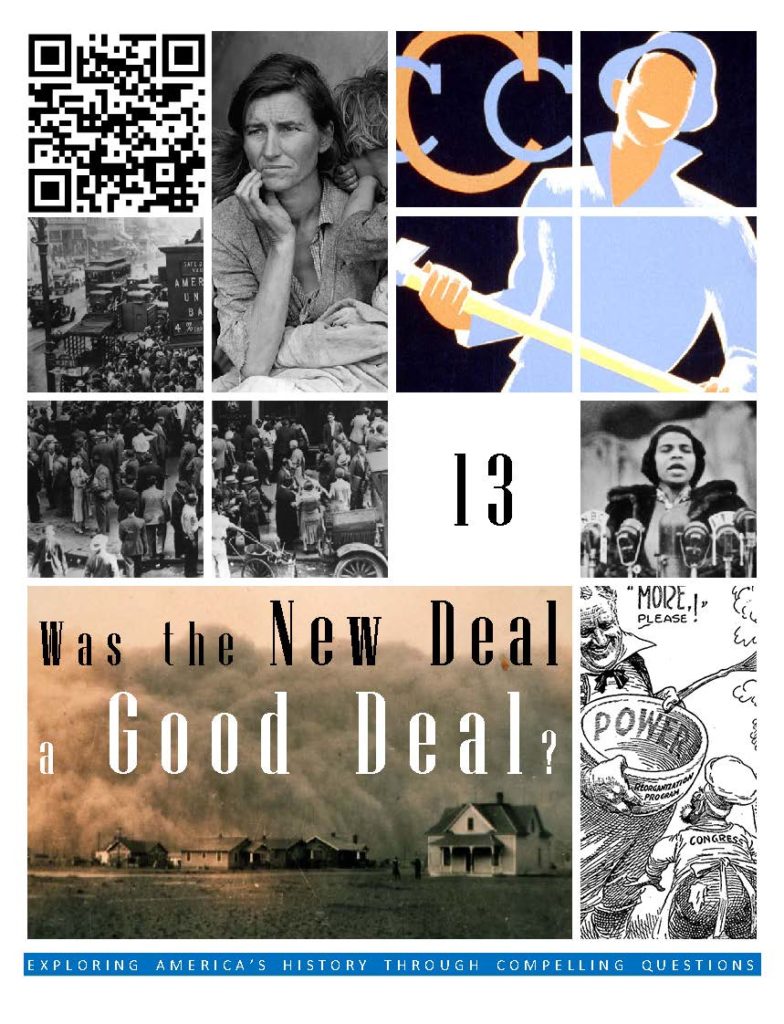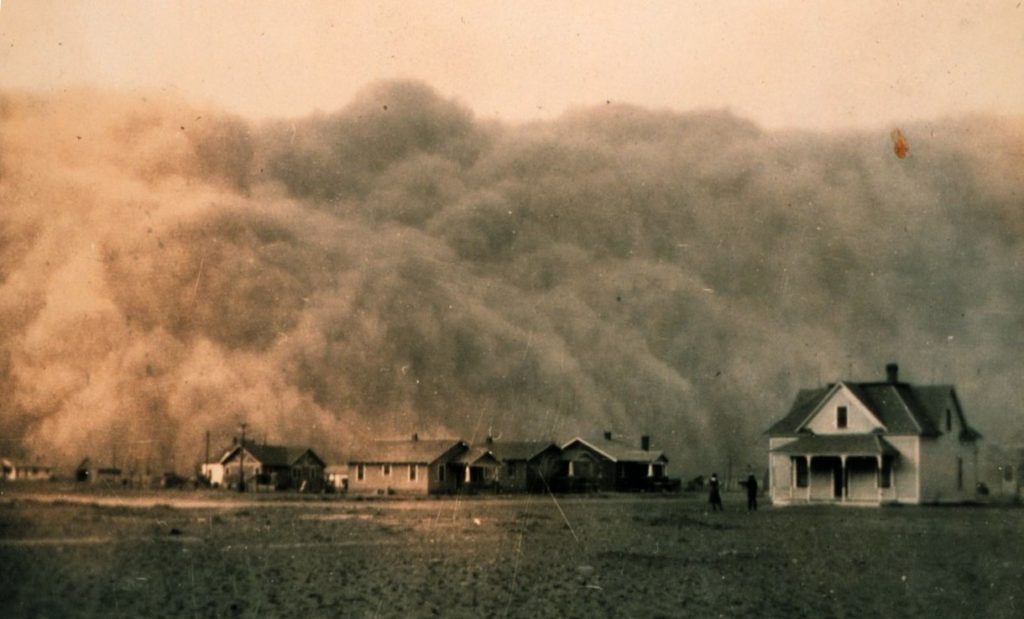
PRINT VERSION
Throughout our history, the United States has experienced a cycle of economic booms and busts. The recent economic collapse during the Coronavirus Pandemic and the Great Recession of the 2010s are just the latest examples. The worst was the Great Depression of the 1930s. Following on the heels of the Roaring 20s, the hardships of the 1930s had long-lasting impacts. Globally, the economic downturn led to the rise of Fascism in Europe, and militarism in Asia. In the United States, at the worst point, one in every four workers was out of a job. Tens of thousands of teenagers roamed the nation by train looking for work and food.
After blaming President Hoover and electing Franklin Roosevelt, Americans embarked on a struggle to overcome the problems by radically expanding the role and size of the federal government. Roosevelt’s set of proposals, called the New Deal, changed the way people think about and interact with their government. For the first time, people looked to the President and Congress to take care of their basic wellbeing. The government provided jobs, loans, and the money to restart the struggling economy. Ultimately, the New Deal was so expansive that it remade the landscape, and left behind the beloved, but expensive, program of Social Security.
Was this good for America? Certainly, at the time some prominent Americans disagreed with Roosevelt’s plans. For a variety of reasons, some on the political left and right rejected the New Deal. Perhaps the greatest critique of the New Deal is that it did not actually end the Depression. It was not until World War II started that high rates of unemployment disappeared. Despite that, we are left with many of the programs Roosevelt and his team created. And most of all, we are left with a different idea about the role of government in our lives.
What do you think? Was the New Deal a good deal?
CONTINUE READING
